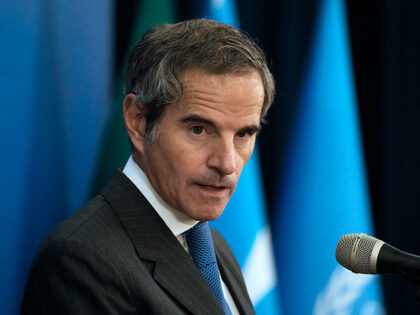
THREAD: iran nuclear
LifeLine™ Media threads use our sophisticated algorithms to construct a thread around any topic you want, providing you with a detailed timeline, analysis, and related articles.
News Timeline


IRAN’S Nuclear Threat: Global Fears and Rising Pressure
— The world is worried about Iran’s nuclear activities. Rafael Grossi, head of the International Atomic Energy Agency (IAEA), stressed the need for “concrete, tangible and visible results” during his visit to Tehran. He urged Iran to show progress and ease tensions to possibly avoid conflict.
Grossi’s comments seem directed at Israeli Defense Minister Israel Katz’s recent statements. Katz pointed out Israel’s airstrikes in October, saying they revealed Iran’s nuclear sites to potential attacks. He claimed these actions might help remove threats against Israel.
Grossi criticized Iran for not cooperating with IAEA inspectors and increasing uranium enrichment activities. He noted that compliance with inspection rules stopped early in the Biden administration, complicating transparency efforts and resolution attempts.

NETANYAHU SLAMS Iran’s "Axis Of Evil" After Deadly Attack
— Israeli Prime Minister Benjamin Netanyahu condemned Iran’s “axis of evil” following a terrorist attack at the West Bank-Jordan border crossing that killed three Israelis. “It’s a hard day. A despicable terrorist murdered three of our citizens in cold blood at the Allenby Bridge,” Netanyahu stated, extending condolences to the victims’ families.
Netanyahu emphasized that Israel is surrounded by a murderous ideology led by Iran. He noted recent attacks where terrorists killed six hostages and three Israeli police officers, stressing that these killers aim to murder all Israelis indiscriminately.
The Israeli military reported that a gunman approached the Allenby Bridge Crossing from Jordan in a truck and opened fire before being killed in a shootout with Israeli security forces. The victims were identified as Israeli civilians, all men in their 50s, according to Israel’s Magen David Adom rescue service.
Jordan is investigating the incident, as reported by its state-run Petra News Agency. Meanwhile, Hamas official Sami Abu Zuhri celebrated the attack and linked it to Israel’s offensive in Gaza, stating they expect more similar actions.
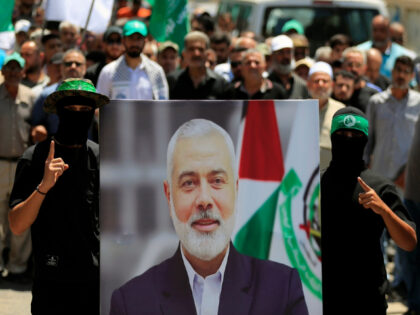
ISRAEL ELIMINATES Hamas Leader in Iran: What It Means for Peace
— Haniyeh was killed in Iran on Tuesday, with Israeli intelligence widely attributed to the operation. No public claim of responsibility has been made. Haniyeh had lived lavishly in Qatar, funded by international aid meant for Palestinians.
Secretary of State Antony Blinken denied U.S. involvement in Haniyeh’s death during an interview with Channel News Asia in Singapore. He emphasized that ceasefire talks in Gaza would continue despite the incident.
Blinken stated it was difficult to predict how Haniyeh’s death would impact negotiations but stressed the importance of ending Palestinian suffering and securing the release of hostages, including Americans.
He added that preventing the Gaza conflict from spreading is a top priority for the administration. Blinken believes a ceasefire is crucial to lowering tensions and achieving lasting peace and security in the region.
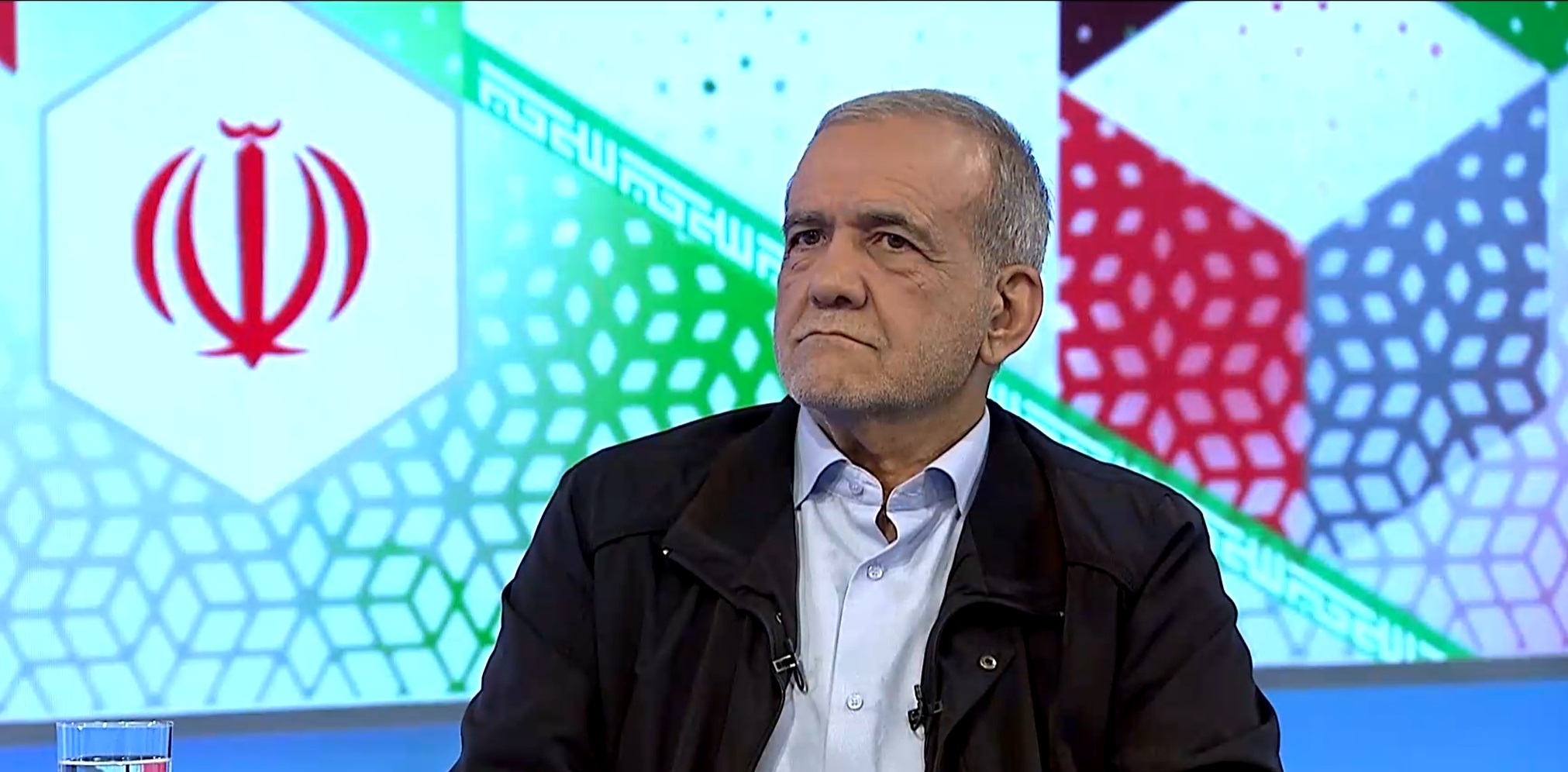
REFORMIST VICTORY: Iran’s New President Promises Change
— Reformist candidate Masoud Pezeshkian won Iran’s runoff presidential election, defeating hard-liner Saeed Jalili. Pezeshkian promised to reach out to the West and ease enforcement on the mandatory headscarf law. He secured 16.3 million votes compared to Jalili’s 13.5 million in an election with a 49.6% turnout.
Pezeshkian assured no radical changes to Iran’s Shiite theocracy, acknowledging Supreme Leader Ayatollah Ali Khamenei as the final authority. Despite his modest aims, he faces challenges from hard-liners and ongoing geopolitical tensions, including Western concerns over Iran’s uranium enrichment program.
Supporters celebrated in Tehran and other cities as Pezeshkian’s lead grew over Jalili. The heart surgeon and longtime lawmaker addressed journalists at Grand Ayatollah Ruhollah Khomeini’s mausoleum, emphasizing his commitment to honesty and fulfilling promises made during his campaign.
Pezeshkian’s victory comes at a delicate time with high tensions in the Mideast and an upcoming U.S. election that could impact relations between Tehran and Washington. His win wasn’t a landslide, indicating he must navigate Iran’s complex internal politics carefully as he lacks experience in high-level security roles.
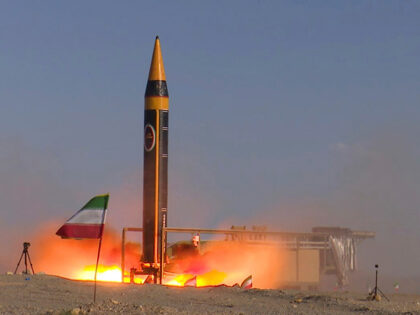
IRAN’S Nuclear Threat: Iaea Demands Compliance
— The International Atomic Energy Agency (IAEA) passed a resolution with a vote of 20-2, urging Iran to comply with its nuclear obligations. Russia and China opposed the measure, while the Biden administration reluctantly supported it despite concerns about jeopardizing nuclear deal negotiations.
A joint statement from the UK, France, and Germany emphasized the need for Iran to cooperate fully with the IAEA. The resolution followed Iran’s blocking of senior inspectors and its significant enrichment of uranium beyond limits set by Obama’s 2015 nuclear deal.
IAEA Director-General Rafael Grossi criticized Iran’s actions as “completely uncalled for” and “illogical.” Grossi visited Tehran in May to address issues including inspector bans and halted monitoring devices at nuclear sites.

RUSSIA’S Nuclear Warning: UK Military Sites in Crosshairs Amid Escalating Tensions
— Russia has heightened tensions by threatening to target UK military bases. This aggressive stance follows Britain’s decision to supply weapons to Ukraine, which Russia alleges have been used against its territory. This threat emerges as Russia prepares for President Vladimir Putin’s fifth term inauguration and the national Victory Day celebrations.
In a bold response to what it describes as Western provocations, Russia is set to conduct military drills that simulate the use of tactical nuclear weapons. These exercises are unique because they focus on battlefield nuclear capabilities, unlike typical maneuvers involving strategic nuclear forces. Tactical nuclear weapons are intended for localized impact, minimizing broader destruction.
The global community has expressed deep concern over these developments. U.N. spokesman Stephane Dujarric voiced worries about the increasing talk of nuclear arms usage, describing the current risks as “alarmingly high.” He emphasized the need for nations to refrain from actions that might lead to misjudgments or catastrophic consequences.
These events underscore a critical moment in international relations, highlighting the delicate balance between national defense and global security threats. The situation calls for careful diplomatic engagement and a reassessment of military strategies by all involved nations to prevent further escalation of tensions.
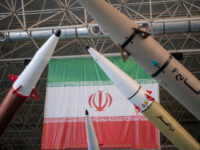
IRAN THREAT or Political Play? Netanyahu’s Strategy Questioned
— Benjamin Netanyahu has always pointed to Iran as a major threat since his first term in 1996. He has warned that a nuclear Iran could be disastrous and often mentions the possibility of military action. Israel’s own nuclear abilities, rarely talked about publicly, back up his tough stance.
Recent events have brought Israel and Iran closer to direct conflict. After an Iranian attack on Israel, which was a retaliation for an Israeli strike in Syria, Israel hit back by launching missiles at an Iranian air base. This marks a severe increase in their ongoing tensions.
Some critics think Netanyahu might be using the Iran issue to shift focus from problems at home, especially issues concerning Gaza. The timing and nature of these attacks suggest they could overshadow other regional conflicts, raising questions about their true intent.
The situation remains tense as both countries continue this dangerous confrontation. The world watches closely for any new developments that might signal either escalation or possible solutions to the conflict.
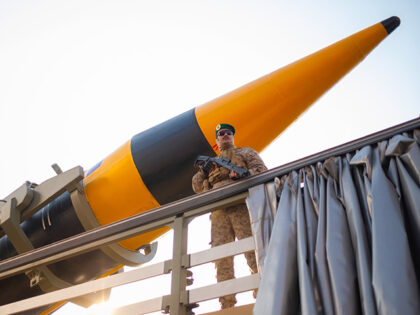
IRAN’S BOLD Strike: Over 300 Drones Target Israel in Unprecedented Assault
— In a bold move, Iran launched over 300 drones and missiles at Israel, marking a major spike in hostilities. This attack was directly from Iran, not through its usual channels like Hezbollah or the Houthi rebels. President Biden called this assault “unprecedented.” Despite the massive scale of this strike, Israel’s defense systems managed to intercept about 99 percent of these threats.
Iran hailed this as a “victory,” even though the damage was minimal and only one Israeli life was lost. The Islamic Revolutionary Guard Corps (IRGC), known as a terrorist organization by the U.S., spearheaded this attack after vowing revenge on Israel for targeting their leaders. This move is seen by many as proof of Iran feeling more bold due to current U.S. foreign policy decisions.
This aggressive act followed Iran’s expansion of its drone and missile programs after an important deadline from the Obama-era nuclear deal passed without action on October 18, 2023. This occurred despite Iran breaking the deal’s terms and backing terrorist attacks against Israel, including a recent massacre led by Hamas with Tehran’s support.
Iran’s latest actions show it ignoring international deals and underline worries about its nuclear plans. The regime’s pride in attacking Israel points to its ongoing threat to peace in the Middle East and worldwide security, sparking debate on how best to contain it moving

PUTIN’S NUCLEAR Warning: Russia Ready to Defend Sovereignty at All Costs
— President Vladimir Putin has issued a stern warning, asserting that Russia stands ready to employ nuclear weapons if its statehood, sovereignty, or independence come under threat. This statement emerges just before a presidential vote this week where Putin is anticipated to clinch another six-year term.
During an interview with Russian state television, Putin underscored the full readiness of Russia’s nuclear forces. He confirmed that the nation is militarily and technically prepared and would resort to nuclear action if its existence or independence was threatened.
Despite his continuous threats since launching the invasion of Ukraine in February 2022, Putin refuted any plans of using battlefield nuclear weapons in Ukraine as there hasn’t been any necessity for such drastic measures so far.
U.S President Joe Biden was characterized by Putin as an experienced politician who comprehends the potential dangers of escalation. He voiced optimism that the U.S would avoid actions that could potentially ignite a nuclear conflict.

PUTIN’S NUCLEAR Warning: Russia Ready to Defend Sovereignty at ANY Cost
— In a stark warning, President Vladimir Putin has declared that Russia stands ready to employ nuclear weapons if its statehood, sovereignty or independence comes under threat. This alarming statement comes on the eve of a presidential election this week where Putin is anticipated to secure another six-year term.
During an interview with Russian state television, Putin underscored the full readiness of Russia’s nuclear forces. He confidently affirmed that from a military-technical standpoint, the nation is primed for action.
Putin further explained that according to the country’s security doctrine, Moscow would not hesitate to resort to nuclear measures in response to threats against “the existence of the Russian state, our sovereignty and independence”.
This isn’t Putin’s first mention of his willingness to use nuclear weapons since initiating the invasion of Ukraine in February 2022. However, when queried about deploying battlefield nuclear weapons in Ukraine during the interview, he asserted there was no necessity for such drastic measures.
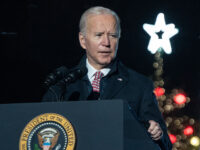
TIME to STOP Iran’s Terror Funding: The Unholy Alliance Exposed
— The current geopolitical landscape has raised serious concerns, according to a recent statement by Lawler. He drew attention to an emerging alliance between China, Russia, and Iran that is becoming increasingly visible. Notably, he identified China as the largest consumer of Iranian petroleum. These sales are providing financial support for dangerous terrorist groups.
Lawler stressed the need for immediate action against Iran in response to over 150 attacks on U.S. military bases and personnel since October 7. Tragically, these assaults have resulted in three servicemembers losing their lives. He called on the administration for a decisive response against Iran.
A bipartisan bill designed to curb illegal funds supporting terrorism was approved in the House after October 7 but has hit a roadblock in the Senate. Lawler urged both Senate and administration officials to advance this bill as part of a comprehensive strategy against these threats.
Lawler believes that an effective response should not only be military or diplomatic but also economic: cutting off funding at its roots. This multi-pronged approach is essential for effectively fighting terrorism.
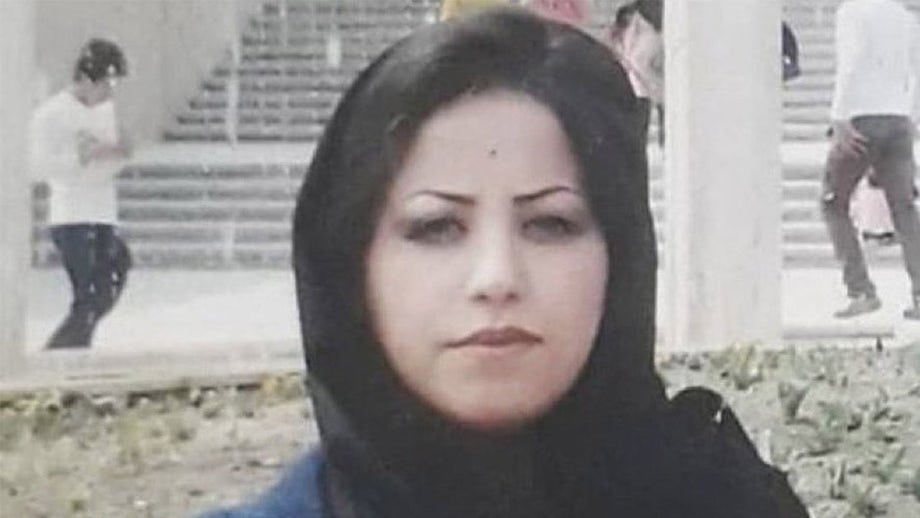
IRAN’S Ruthless ACT: Woman Forced into Child Marriage Executed Despite Global Pleas
— Samira Sabzian, an Iranian woman who was compelled into a child marriage and later incarcerated for her husband’s murder, was executed on Wednesday. This event occurred despite fervent pleas from international human rights groups for leniency. The execution was carried out in Ghezelhesar Prison according to reports from the Norway-based Iran Human Rights (IHRNGO).
Mahmood Amiry-Moghaddam, Director of IHRNGO, referred to Sabzian as a victim of “gender apartheid, child marriage, and domestic violence.” He expressed strong criticism towards the Iranian regime’s management of the case.
Amiry-Moghaddam made it clear that Sabzian had become a target of an “inefficient and corrupt regime’s killing apparatus.” He demanded accountability from Ali Khamenei and other leaders within the Islamic Republic. Sabzian had spent ten years in prison following her arrest for her husband’s murder.
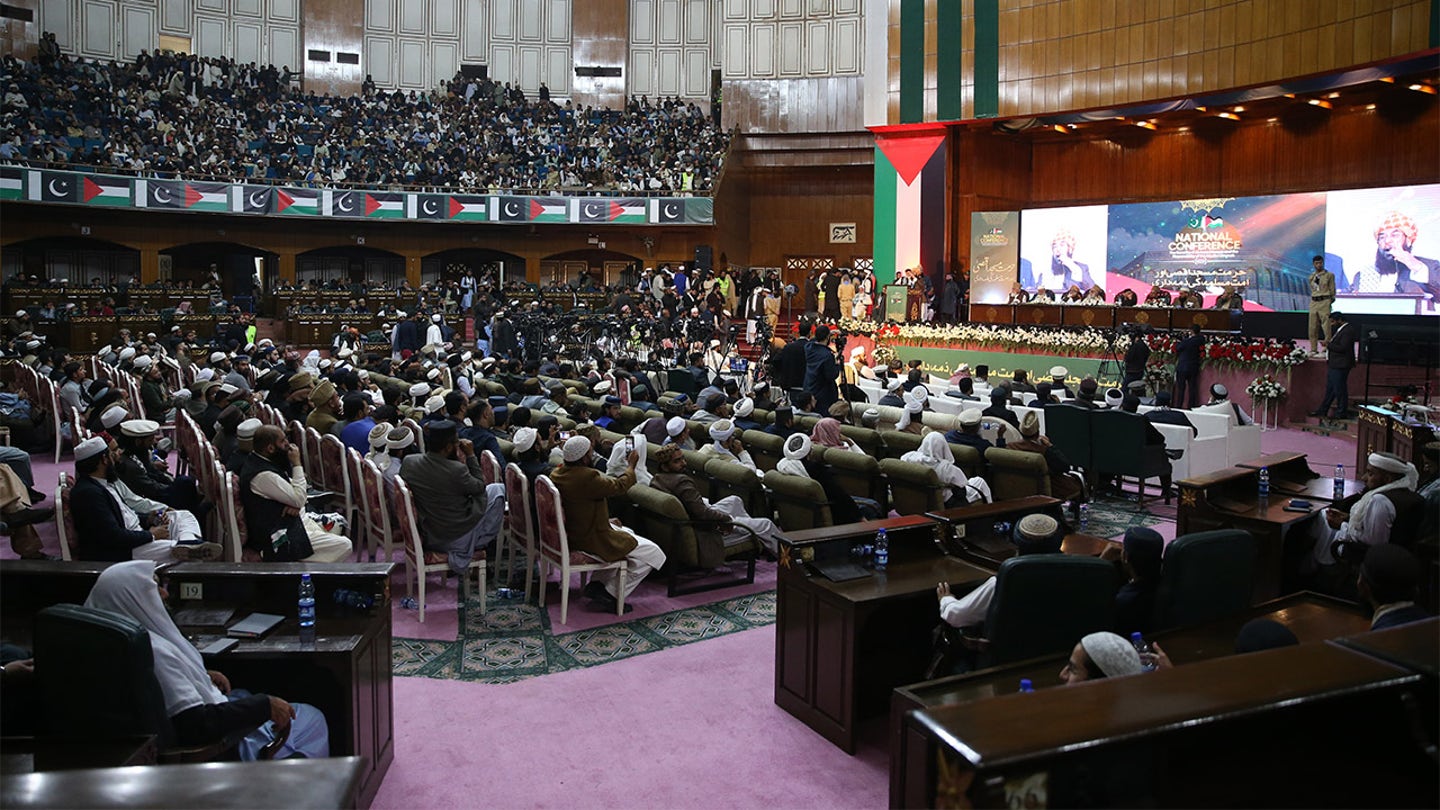
PAKISTAN’S Nuclear Leverage: Hamas Leaders Urge for a Showdown with Israel
— Leaders of Hamas and Islamic scholars gathered in Pakistan’s capital recently. They suggested that the ongoing conflict in Gaza might be stopped if nuclear-armed Pakistan were to threaten Israel. These remarks have been widely reported in Pakistani media and noted by the Middle East Media Research Institute (MEMRI).
The conference, titled “The Sanctity of Al-Aqsa Mosque and the Responsibility of the Islamic Ummah,” was put together by the “Pakistan Ummah Unity Assembly.” According to MEMRI, this assembly is a network of Islamic religious organizations.
Ismail Haniyeh, one of the main speakers at this event, called on Pakistan to take a more proactive role in resolving the Israel-Hamas conflict. He said, “If Pakistan threatens Israel, then we can halt this war. We have high hopes from Pakistan. They can compel Israel to back down.”
Haniyeh also referred to Jews as “the biggest enemy of Muslims worldwide.” This inflammatory language has raised eyebrows among international observers due to concerns about escalating tensions in an already unstable region.
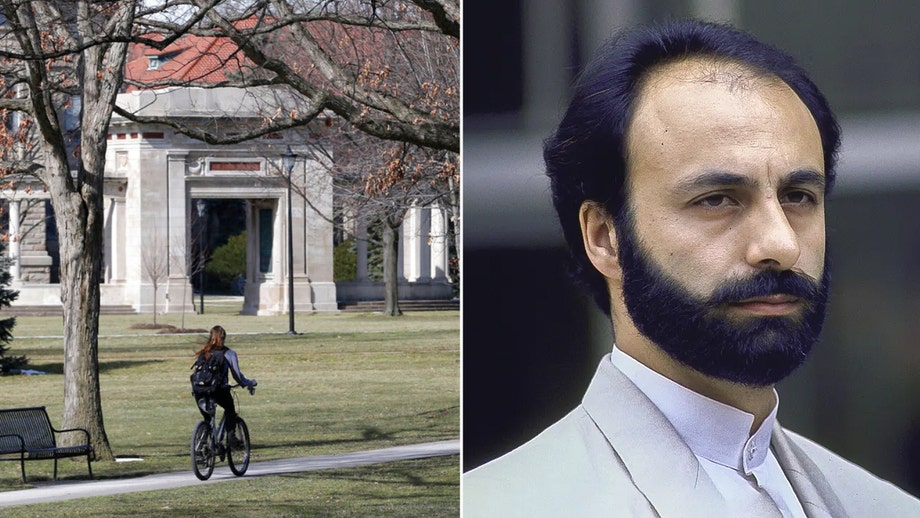
OBERLIN College DUMPS Former Iran Official Amid Shocking Mass Murder Scandal
— Ohio’s Oberlin College has dismissed Mohammad Jafar Mahallati, a former Iranian official and religion professor. This decision comes after a persistent three-year campaign by Iranian Americans. They were outraged by Mahallati’s alleged involvement in the cover-up of the mass execution of at least 5,000 Iranian political prisoners in 1988.
Mahallati was also scrutinized by the U.S. Department of Education Office of Civil Rights. He was accused of harassing Jewish students and supporting Hamas, a group recognized as a terrorist organization by both the U.S. and EU. On November 28, Oberlin College spokesperson Andrea Simakis confirmed that Mahallati had been put on indefinite administrative leave.
In less than four weeks, Oberlin College removed all traces of Mahallati from its website. This included his profile and a fact sheet that allegedly downplayed his reported crimes against humanity, antisemitism, and genocidal rhetoric targeting Iran’s Baha’i community. His nameplate was also removed from his office door — another signal pointing to the college’s disassociation with him.
This move is seen as an acknowledgment by Oberlin College President Carmen Twillie Ambar that her defense for Mahallati over three years was unsustainable. The administration has been dealing with various controversies involving Mahallati
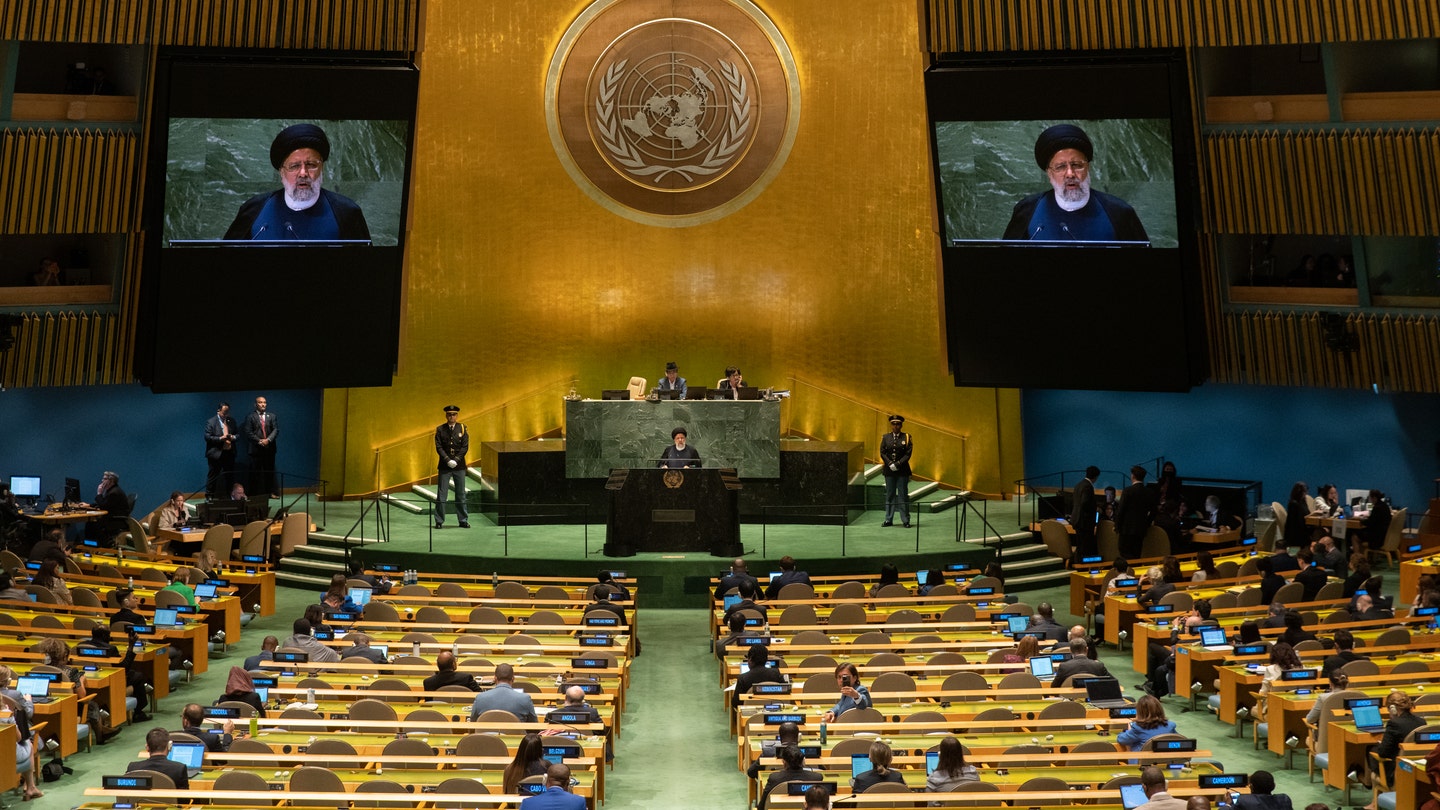
IRAN’S Death March: Over 100 Lives Silenced Since Hamas Attack
— Since the Hamas terrorist attack on October 7, Iran has silenced over a hundred lives, drawing global scrutiny. This alarming surge in executions, referred to as Tehran’s “execution spree,” was spotlighted by the National Council of Resistance of Iran (NCRI) on November 15, 2023.
The NCRI revealed this disturbing trend while the United Nations General Assembly’s Third Committee was contemplating a resolution to condemn Iran’s human rights abuses. Despite numerous UN rebukes for their “systematic and widespread violation of human rights,” the Iranian regime remains undeterred in its brutal execution campaign.
The council implored the international community to isolate Iran as a response to these heinous actions. The NCRI denounced any form of appeasement with Iran, notorious for its record-breaking executions and warmongering activities. They argued that such tolerance clearly contradicts international human rights standards.
Independent news outlet Al-Monitor reported that since October 7, Iran has executed 114 people for “fabricated crimes,” including vague charges like “corruption on Earth” and “enmity against God.” While the NCRI estimates slightly fewer executions at around 107 so far, they anticipate this number will continue to escalate in the coming days and weeks. This grim situation emphasizes an urgent call-to-action against Iran’s ongoing human rights
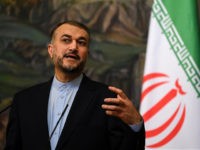
IRAN’S CRY to Brics Nations: ‘Help Stop Israeli Attacks’
— Iran’s Foreign Minister, Hossein Amirabdollahian, has made a plea to the foreign ministers of the BRICS nations. These nations include Brazil, Russia, India, China, and South Africa. He is asking them to call for an Israeli ceasefire in Gaza. This appeal comes as Israel continues its attacks on the Hamas terrorist network. Iran became part of the BRICS coalition in August 2022.
Amirabdollahian’s letter doesn’t mention any of Hamas’ atrocities from October 7th. Instead, he focuses only on what he calls Israel’s “genocidal attacks.” He uses casualty figures from Hamas-run agencies as if they were reliable facts. Furthermore, he accuses Israel of illegal land usurpation and human rights abuses against Palestinians.
Iranian President Ebrahim Raisi backed Amirabdollahian’s views in a phone call with Pope Francis. Like his foreign minister, Raisi presented unverified Hamas casualty figures as fact and accused Israel of committing “genocide” against Palestinians. Neither Iranian official acknowledged recent Hamas crimes against humanity.
These crimes include using civilians as human shields and preventing civilian evacuation after warnings from the Israeli Defense Forces (IDF) about impending airstrikes. This selective narrative by Iranian officials raises questions about their objectivity and commitment to peace in the region.
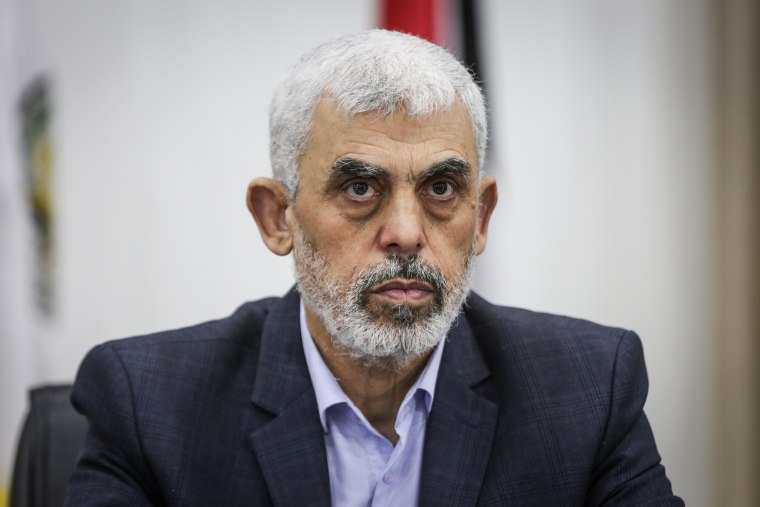
IRAN Stands with HAMAS Leader Amidst Looming Israeli Threats
— Hamas leader Ismail Haniyeh held talks with Iranian Foreign Minister Hossein Amirabdollahian in Qatar this past Tuesday. The meeting followed a deadly attack by the organization in Israel on October 7, resulting in a staggering loss of 1,400 lives. Despite the grim situation, Haniyeh voiced his belief that divine intervention would favor the faithful.
Haniyeh hinted at an apprehension within the Israel Defense Forces when it comes to confronting resistance groups in Gaza. Yet, Israeli leaders have suggested that dealing with their intelligence forces might prove more daunting than he expects. Yair Laid, the opposition leader, asserted on Monday that Israel’s mission should not cease until six prominent Hamas figures are neutralized.
Israel’s intelligence agencies — Mossad and Shin Bet — have reportedly formed a special unit named NILI to counter this threat. The unit’s name hails from an acronym used as a secret code by a covert pro-British spy group during World War I. In light of the recent massacre, there is growing anticipation that senior Hamas leaders will be targeted regardless of their location.
Israeli political figures are united in their resolve to dismantle Hamas following its unprecedented assault last October which led to over 1,400 fatalities and 5,400 injuries. Videos documenting these horrors were captured and disse

Allies OUTRAGED at Biden’s Controversial Decision to Supply CLUSTER Bombs to Ukraine
— The US’s decision to supply Ukraine with cluster bombs has caused international unrest. On Friday, President Joe Biden acknowledged it as a “very difficult decision.” Allies such as the UK, Canada, and Spain have voiced opposition to the weapons’ use. Over 100 countries condemn cluster bombs due to the indiscriminate harm they can cause to civilians, even years after a conflict ends.
Volodymyr Zelensky Wanted Ukraine to OCCUPY Russian Territory
— According to leaked US intelligence, Ukrainian president Volodymyr Zelensky wanted to send troops to occupy Russian villages. The leak also revealed Zelensky considered launching an attack on a vital Hungarian oil pipeline.
Ukraine DENIES Attacking Moscow or Putin With DRONE
— Ukraine’s President Zelensky denies involvement in an alleged drone attack on the Kremlin, which Russia claims was an assassination attempt on President Putin. Russia reports that two drones were downed and threatens to retaliate when necessary.
China Says it WON’T Add ‘Fuel to the Fire’ in Ukraine
— The Chinese president, Xi Jinping, has reassured Ukrainian president Volodymyr Zelenskyy that China will not escalate the situation in Ukraine and said it’s time to “resolve the crisis politically.”
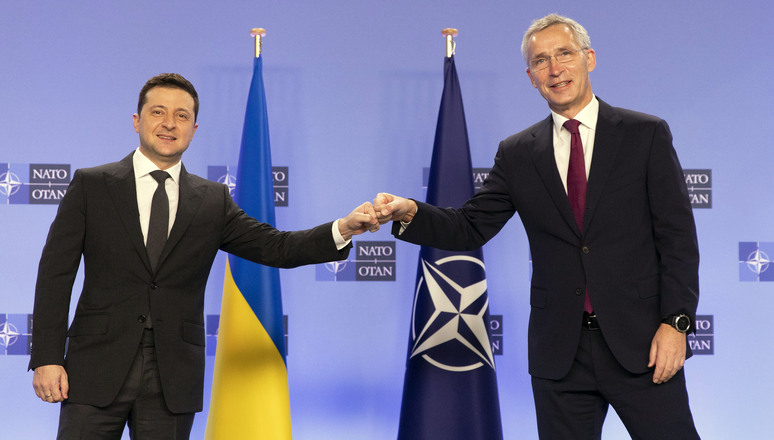
United States OPPOSES Plan for Ukraine to Join NATO
— The United States is opposing efforts by some European allies, including Poland and the Baltic states, to offer Ukraine a “road map” to NATO membership. Germany and Hungary are also resisting efforts to provide Ukraine with a path to join NATO at the alliance’s July summit.
Ukraine’s president, Volodymyr Zelenskyy, has warned that he will only attend the summit if tangible steps are presented toward NATO membership.
In 2008, NATO said that Ukraine would become a member in the future. Still, France and Germany pushed back, concerned that the move would provoke Russia. Ukraine formally applied for NATO membership last year after Russia’s invasion, but the alliance remains divided on the path forward.
Massive Chinese SURVEILLANCE Balloon Detected Flying Over Montana Near NUCLEAR Silos
— The US is currently tracking a Chinese surveillance balloon hovering over Montana, close to nuclear silos. China claims it’s a civilian weather balloon that was blown off course. So far, President Biden has decided against shooting it down.
TOO CLOSE for Comfort: Russian Warship Carrying HYPERSONIC Missiles Approaches English Channel
— Vladimir Putin has sent a Russian warship armed with cutting-edge hypersonic missiles on a course that will take it through the English Channel and into the Atlantic Ocean for “combat duty.” This will be the first Russian ship to be armed with hypersonic weapons that are capable of delivering nuclear warheads at speeds ten times the speed of sound, or almost 8,000mph.

Video
IRAN MISSILE Strikes: Middle East on the Brink of Chaos
— Iran has launched missile strikes against Israel, escalating tensions in the Middle East. Iran’s Supreme Leader Ayatollah Khamenei praised the attack and hinted at more actions to come. This aggressive move highlights the fragile state of peace efforts in the region.
In response, the Israeli Defense Forces (IDF) carried out major airstrikes targeting Hezbollah positions in southern Lebanon. The IDF reported eliminating about 250 Hezbollah operatives, including top commanders. This marks a severe escalation between Israel and Iranian-backed Hezbollah, with casualties on both sides.
The United States has warned Iran against further aggression and called for an end to violence, while the United Nations urges restraint from both parties. The global community remains on high alert as tensions continue to rise. Diplomatic efforts are being closely watched for any signs of progress toward peace talks.
Civilians in the region face dire consequences as they are caught in crossfire, raising fears of widespread humanitarian impacts and regional instability. Thousands have been displaced already due to ongoing hostilities. As diplomatic channels remain open, there is hope for a return to peace talks and a reduction in violence.
More Videos
Invalid Query
The keyword entered was invalid, or we couldn't gather enough relevant information to construct a thread. Try checking the spelling or entering a broader search term. Often simple one-word terms are enough for our algorithms to build a detailed thread on the topic. Longer multi-word terms will refine the search but create a narrower information thread.

Chatter
What the world is saying!
On updated nuclear doctrine, Lavrov: - Says Russia “in favour” of not allowing nuclear war - Accuses Western politicians of starting this conversation, citing Liz Truss saying she was “ready...
. . .Utterly disgraceful that the UK voted against a UN resolution to study the impact of nuclear war, alongside Russia and France. The government is burying its head in the sand over the dangers...
. . .